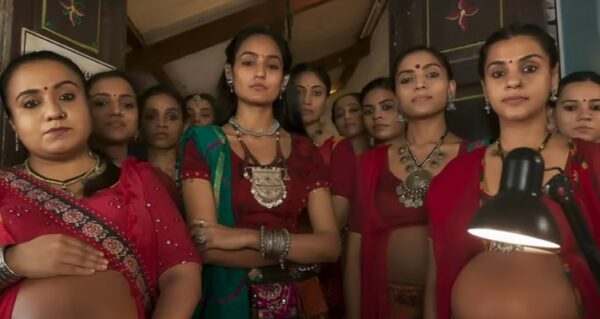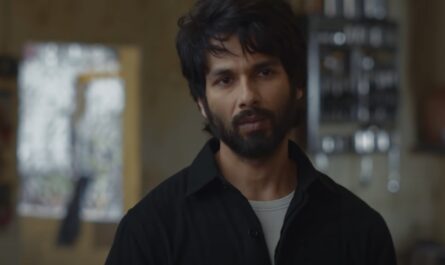Explore the intricacies of “Dukaan,” Siddharth Singh and Garima Wahal’s directorial debut, through this critical examination. Uncover the film’s thematic depth, performance nuances, and technical prowess, alongside its narrative pitfalls and thematic ambiguities. With a discerning eye, dissect the journey of Jasmine Patel and the societal constructs surrounding surrogacy rights.
In the bustling realm of Indian cinema, where narratives often delve into societal complexities, Siddharth Singh and Garima Wahal’s directorial debut, “Dukaan,” emerges as a curious endeavour. Positioned as a poignant exploration of surrogacy rights, this film embarks on a journey fraught with narrative pitfalls and thematic missteps.

A Glimpse into the Plot
At the heart of “Dukaan” lies the tale of Jasmine Patel (portrayed by Monika Pawar), a character sculpted from the clay of adversity and resilience. Her evolution from Chameli to Jasmine unfolds against the backdrop of surrogacy, a realm where the boundaries of parenthood and identity blur. Yet, amidst the thematic potential, the narrative struggles to find its footing, stumbling over contrived twists and melodramatic conflicts. The tangled web of relationships, particularly Jasmine’s dilemma over the custody of a surrogate child, serves as the focal point, albeit marred by erratic pacing and superficial characterizations.
Highlights and Critiques
Writing and Direction:
Navigating through decades without anchoring the narrative in temporal coherence, “Dukaan” meanders through disjointed sequences, punctuated by fleeting musical interludes. The film’s breathless pace robs viewers of the opportunity to immerse themselves fully, leaving them adrift in a sea of unresolved emotions. Despite commendable efforts to highlight societal issues, the execution falters, veering towards melodrama and narrative inertia. The juxtaposition of found families and the intricacies of surrogacy remains a tantalizing backdrop, overshadowed by a penchant for theatrics.
Star Performances:
In the tapestry of performances, Monika Pawar shines as Jasmine, infusing the character with a vivacious yet nuanced portrayal. However, amidst the ensemble cast, characterized by Himani Shivpuri’s fleeting presence and Monali Thakur’s impassioned rendition, the narrative fails to harness the full potential of its actors. Moments of emotional resonance are overshadowed by exaggerated gestures and predictable character arcs, detracting from the film’s intended impact.
Technical Evaluation:
On a technical front, “Dukaan” boasts visually arresting cinematography and a melodic score that punctuates key moments. However, these technical flourishes often serve as a veneer, masking underlying deficiencies in pacing and narrative coherence. The editing, while proficient, fails to salvage the disjointed narrative, leaving viewers disoriented amidst a cacophony of thematic motifs and subplots.
On the Bright Side:
Amidst its narrative shortcomings, “Dukaan” offers glimpses of thematic depth and emotional resonance. The film’s exploration of surrogate rights and maternal instincts, though muddled, sparks vital conversations surrounding societal norms and familial bonds. Monika Pawar’s spirited portrayal of Jasmine injects moments of authenticity amidst the narrative tumult, serving as a beacon of hope amidst the film’s thematic ambiguity.
Areas of Improvement:
For “Dukaan” to realize its full potential, it must strive for greater narrative cohesion and thematic clarity. Streamlining subplots and delving deeper into the nuances of surrogacy rights could elevate the film beyond mere melodrama. Moreover, a more measured approach to pacing and character development would allow audiences to fully invest in the journey of its protagonists, transcending the confines of cinematic spectacle.
Final Verdict
In conclusion, “Dukaan” stands as a testament to the complexities of cinematic storytelling, where ambition often outstrips execution. While Siddharth Singh and Garima Wahal’s vision is undeniably bold, it is ultimately undercut by narrative inconsistencies and thematic dilution. As audiences grapple with the film’s parting message, its final rating of 2/5 serves as a sobering reminder of the chasm between intention and execution in the realm of Indian cinema.

